Books · Dominik Mayer · Products, Asia, Productivity
Haruki Murakami's Deep Work
Haruki Murakami’s What I Talk About When I Talk About Running inspired Cal Newport’s theory of deep work. Newport explains:
Against the advice of nearly everybody, he sold his bar, and moved to Narashino, a small town in the largely rural Chiba Prefecture. He began going to bed when it got dark and waking up with the first light. His only job was to sit at a desk each morning and write. His books became longer, more complex, more story driven. He discovered what became his signature style.
Another Language
As if Chinese wasn’t enough, Ouwen and I decided to learn Korean. Last week a Korean friend has been at home and bought us the book “Korean made easy for beginners”. Looks very good.

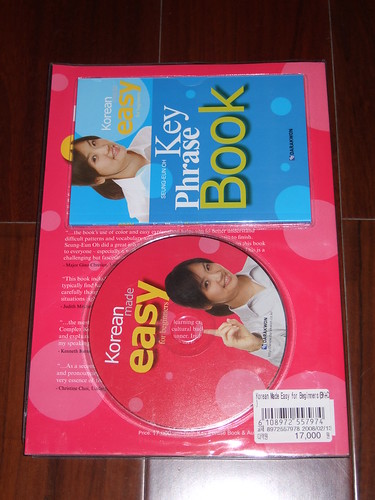
It’s good that they included a CD because I can’t find the free mp3s online. The book is for beginners which implies that they do not speak Korean. How are they supposed to understand the website.

Hangul: Fascinating. Not as hard as Hanzi but also not too easy.
Shanghai Library

China’s largest public library.





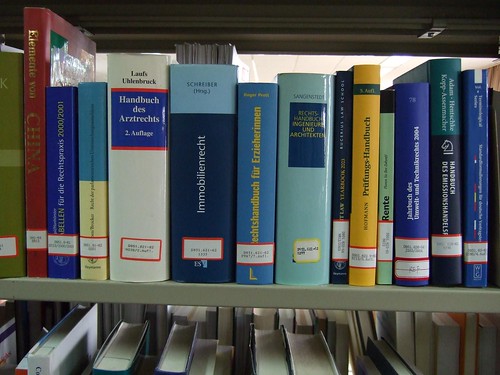
The “Rechtshandbuch für Erzieherinnen” (”law guide for educators") should be part of every well-assorted library. ;-)

German Pinyin
What would it look like if you’d try to write German pronunciation in pinyin?
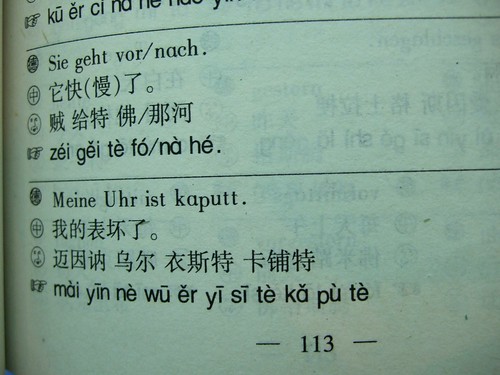

To all Chinese that think it’s a great idea: Germans most likely won’t understand.
Questions About Giant Pandas
We were looking for flashcards but couldn’t find any. The Chinese don’t seem to know them. And on our first day all the shops had closed at 6 pm, even the Foreign Language Bookstore where we wanted to get preprinted ones. But I found something else in another bookstore:

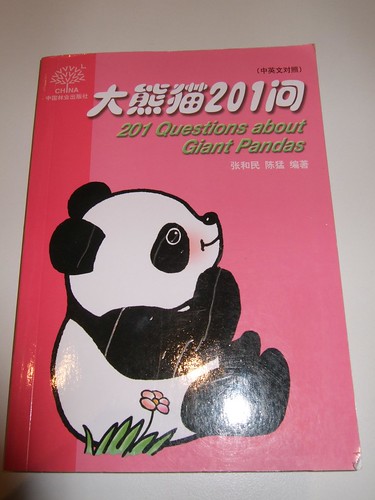
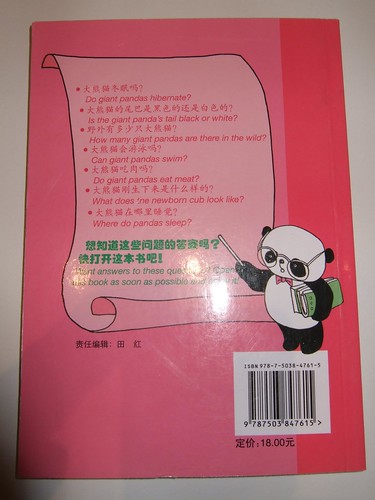
Did you know that Giant Pandas usually don’t feel carsick?
Book Strikes Back
Got a paper cut on my finger tip. What really annoys me is the fact that the wrongdoer was my old and highly appreciated mechanics book I was about to lend.
PS: Is this really the hottest question concerning a bleeding paper cut?
Compelling Offers
Amazon offered me some great things today. Books about elastostatics and maths for engineers, another one about programming in C and a scientific calculator. Halleluja.
Mulholland Dr.
When I had to prepare Goethe’s Faust II back in high school I couldn’t understand a single line without the help of secondary literature.
Several years later I watched Mulholland Dr. and it was pretty much the same. The second time was better but I still read some interpretations. I’m really looking forward to rewatching it, quite contrary to Faust II which I’ll probably never touch again.
Awaiting Chinese Books
I finally decided to get the books of the New Approaches To Learning Chinese series: Intensive Spoken Chinese, The Most Common Chinese Radicals and Rapid Literacy in Chinese. The reviews are quite promising and the method convinced me. As the books are already sent, I hope they’ll arrive tomorrow.
Chinese Textbooks
The Chinese course I attended last year used the book Chinesisch für Deutsche (Chinese for Germans). The problem is that it doesn’t contain information on how to write Chinese characters at all. You have to figure it out by yourself. And the first dialogs are about mother, father, cat, dog and the fact that some students learn while others have a break. Not the kind of vocabulary that I suppose is most needed during the first days in Shanghai.
So I think about getting a new book. ChinesePod is going to cover Integrated Chinese throughout the next semester. I also read about the New Practical Chinese Reader which is prefered by some reviewers. How on earth should I know which one is better?

